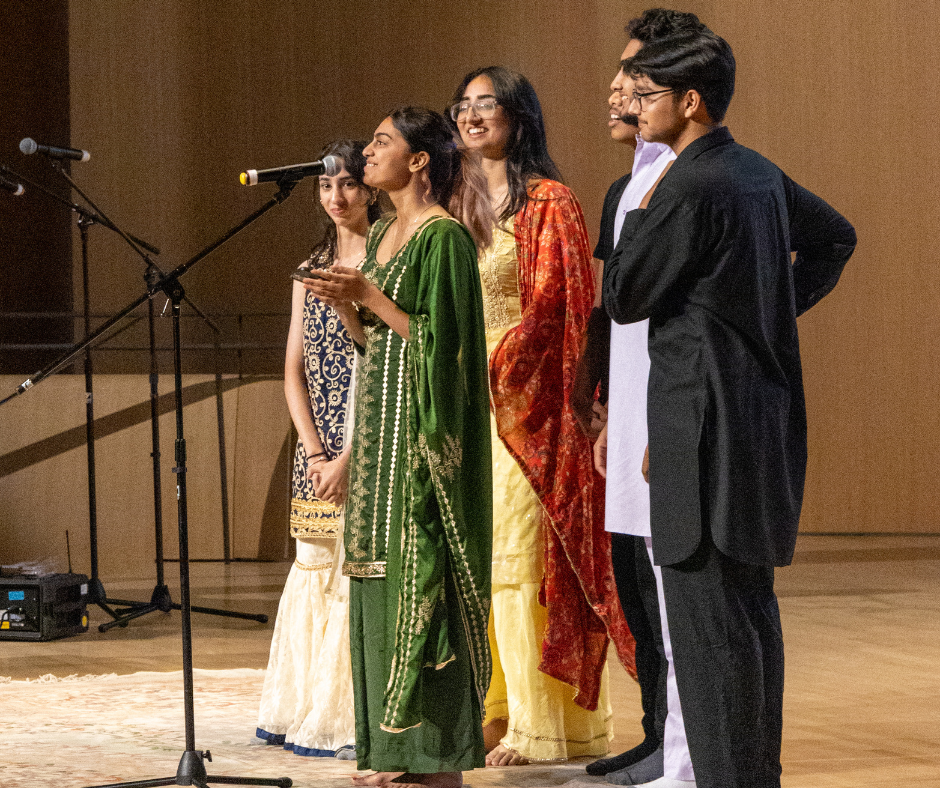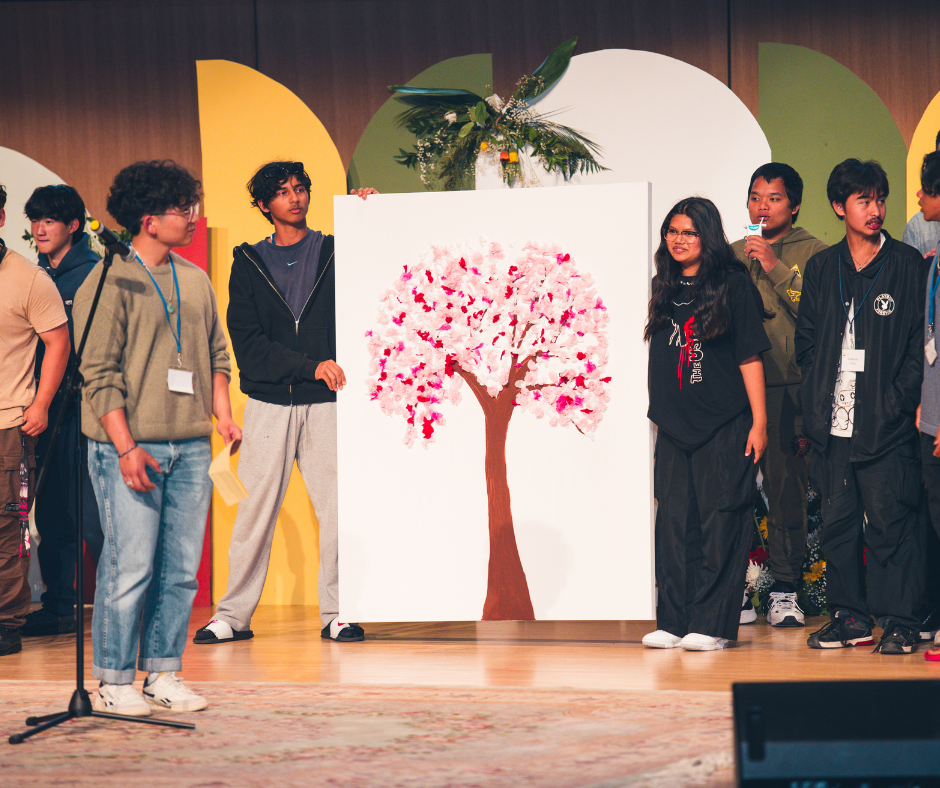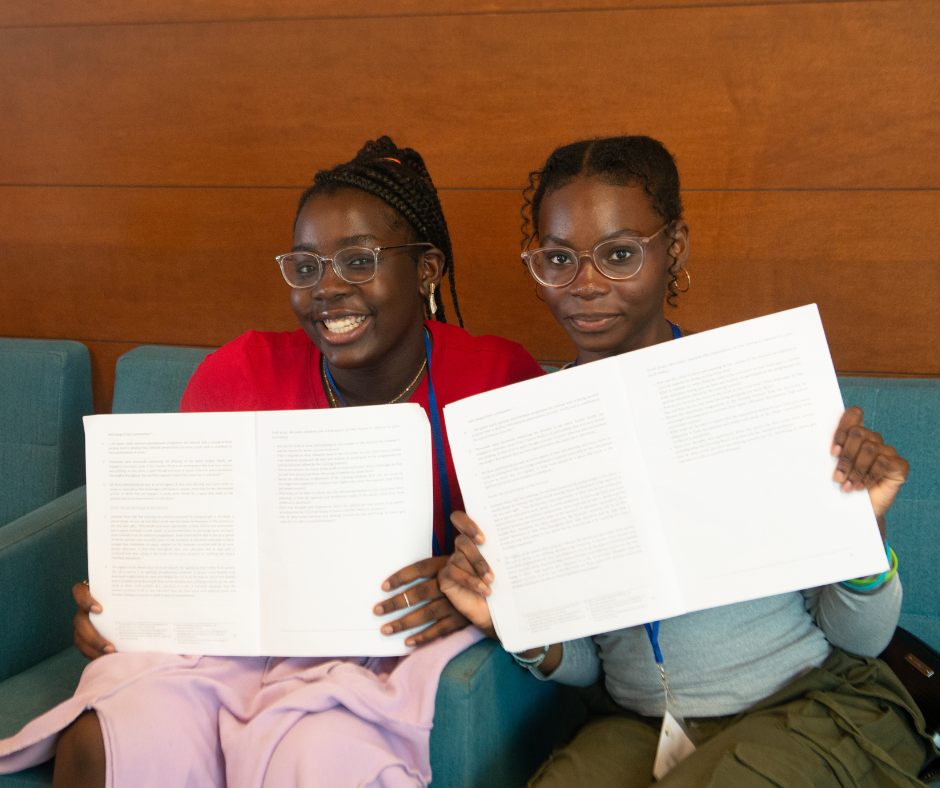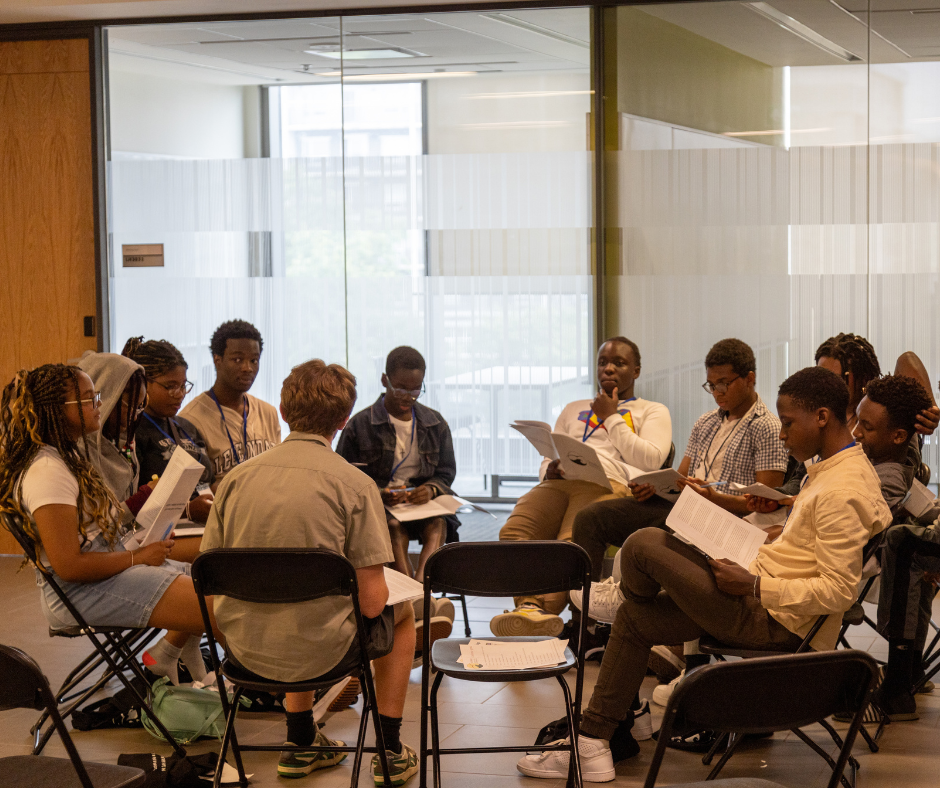Waterloo, Ontario was the site of a two-day youth conference on peace and social transformation on June 29-30. The conference, which was held at Wilfrid Laurier University, brought together over 700 participants from 92 localities across Ontario to reflect on the social issues facing their neighbourhoods and to make plans to foster peace locally.




Participants discussed insights and common questions about social transformation during plenary sessions which also featured a wide variety of cultural dances, visual arts, songs, and poetry that highlighted Ontario’s rich cultural diversity and brought energy to the conference.
Among the ways of contributing to a more peaceful society that participants identified was the practice of having face-to-face conversations with neighbours about themes of social importance, “When you listen and have meaningful conversations and become familiar with your neighbours, you’re building connections and you’re building a common purpose throughout the entire neighbourhood without necessarily realizing it. You’re creating lively and outward looking communities,” said one participant from Ottawa.
Supporting younger generations, particularly children ages 5-10 and junior youth ages 10-14, to navigate an often challenging period of their life, was raised as another way of promoting peace and was a major area of focus for planning. In small groups, participants discussed how Baháʼí -inspired educational initiatives for these age groups are positively impacting the lives of youth and families in their neighbourhoods and made plans for strengthening these programs in their respective localities.
A participant from Waterloo spoke of the relationship between social transformation and the moral education of children she observes in her weekly children’s class, “I believe that in order for change to happen in your community a change needs to happen in an individual’s heart first,” she said. Another participant from Toronto, described the changes she observes in the children in her class, “You see [the children] progress. They’re becoming more open, more social, more talkative. They have more ideas. They’re raising their hands more. I feel so proud I had a hand in that … I’m actually making a difference.” Such reflections throughout the conference’s planning sessions led many participants to offer greater time and energy to supporting existing educational programs.
Reflecting on the impact of educational initiatives in her community, a participant from Thunder Bay shared how groups of youth are fostering hope in her neighbourhood by working to address the needs of community members – especially elders, “Where there is hopelessness in a community, people are striving and hungry for hope, for spirituality, and connectedness with one another. We have three junior youth groups in the neighbourhood that are having an impact. They are all wonderful youth that want to bring peace to their community.”
She explained that the youth in her group have a natural desire to serve others and have been able to organize service projects to respond to needs and challenges they have identified in their community. “Baha’u’llah’s teachings have encouraged us to listen to one another and respect one another. To really listen, because a lot of people, especially in Western culture, forget to learn to listen. We often want to talk about ourselves, but listening as a collective to identify the needs and wants of everyone is something that I’ve learned a lot about this year,” she concluded.
This summer’s conference built upon over 10 years of experience gained by the Canadian Baháʼí community in organizing spaces for young people to reflect on the current conditions of the world and commit their time and energy toward meaningful long-term efforts aimed at building vibrant communities.
One 15-year-old participant from Kipps Lane in London, where many of the residents are of Nepali origin, shared that consistent effort to educate the younger generation and build bonds of friendship between neighbours over the past 10 years has fostered a sense of common identity and purpose within the Nepali-Canadian community in his neighbourhood, “In the past, people in my community were separated by caste, religion and economic status. But through the empowerment and spiritual education of the younger generation we have allowed families from different groups of people to come together to have the same conversation about the future of our community,” said the participant, “when I think about working toward peace, I see it already in the celebrations we hold at the [neighbourhood] centre, or the dance group that started and recently had its first anniversary, or the devotional gatherings that draw all of us from seemingly different backgrounds to see our inherent oneness,” he continued.
Another participant from Scarborough, who has been involved in Baháʼí-inspired educational programs since he was a child and is now animating his own junior youth group, shared his reflections on what it means to foster peace, “When I think of fostering peace, I think of questioning the reality that we live in and asking questions about what changes need to be made to make our community, and our lives, and our future better… Peace shows us that we are more than just ourselves, and that we are actually a community built together and that for one person to really prosper the whole community has to prosper with them,” he concluded.

